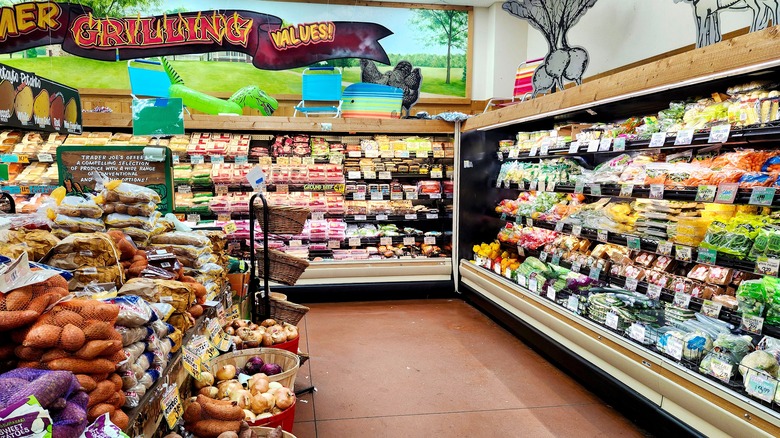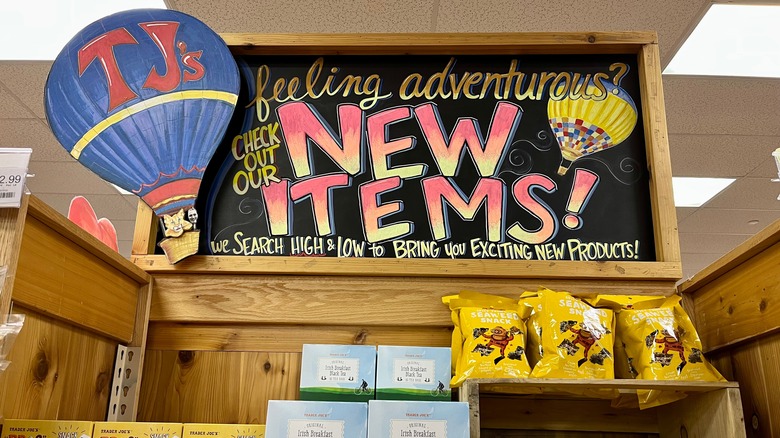Trader Joe's Says This Is The Reason Its Products Are Never On Sale
Trader Joe's is not your typical grocery store. From its eclectic vibe to its focus on products bearing the Trader Joe's label, this grocery store chain charts its own course. One thing shoppers quickly notice is that the store never puts products on sale.
The reason for this no-sale policy is crystal clear. According to Trader Joe's About Us page, "Trader Joe's believes every customer should have access to the best prices on the best products every day." It's a simple statement but a complicated endeavor. How exactly can refusing to put items on sale guarantee "the best prices on the best products?" It's important to view this no-sales policy together with other Trader Joe's key business practices. Taken together, these strategies allow Trader Joe's to keep prices low and even drop prices if costs go down.
Matt Sloan and Tara Miller explained on their podcast, "Inside Trader Joe's," that the company pays close attention to product costs and passes its savings on to customers. Sloan, who is Vice President of Marketing for the brand, also outlined Trader Joe's pricing practices. Unlike some other grocery store chains, Trader Joe's doesn't have a standard markup (a profit percentage applied to the item's cost) for its products. Instead, Trader Joe's analyzes its competitors' retail prices as well as its own costs to ensure that its retail prices are competitive, even if that means Trader Joe's profits on certain products are slightly lower.
How Trader Joe's keeps prices down and maximizes value
Trader Joe's employs several other strategies to keep prices down. For instance, you can't use coupons at Trader Joe's, and there are no membership fees. There isn't even a loyalty program, although Trader Joe's has legions of loyal customers. Nearly every item in the store carries a Trader Joe's label, and unpopular products are discontinued and replaced with new ones. Behind the scenes, Trader Joe's avoids middlemen and buys products directly from its suppliers to keep costs down. Trader Joe's also places its product orders early and buys in volume, which are two more cost-saving tactics. Because Trader Joe's sells products under its store label, it doesn't need to advertise or charge slotting fees. And tasting panels vet each new product, boosting customer confidence in new and seasonal items.
Do these methods work? You bet. CNET compared Trader Joe's prices with Stop & Shop's prices for 50 staple items and found that a shopper buying these products at Trader Joe's instead of Stop & Shop would save almost 33%. Trader Joe's offers excellent value across different grocery categories as varied as frozen food, wine, cheese, beauty products, flowers, and greeting cards. Trader Joe's can't always beat Costco's prices, due to Costco's bulk purchasing model, but you can still save money shopping at Trader Joe's — and you won't have to buy five pounds of apples at a time.

